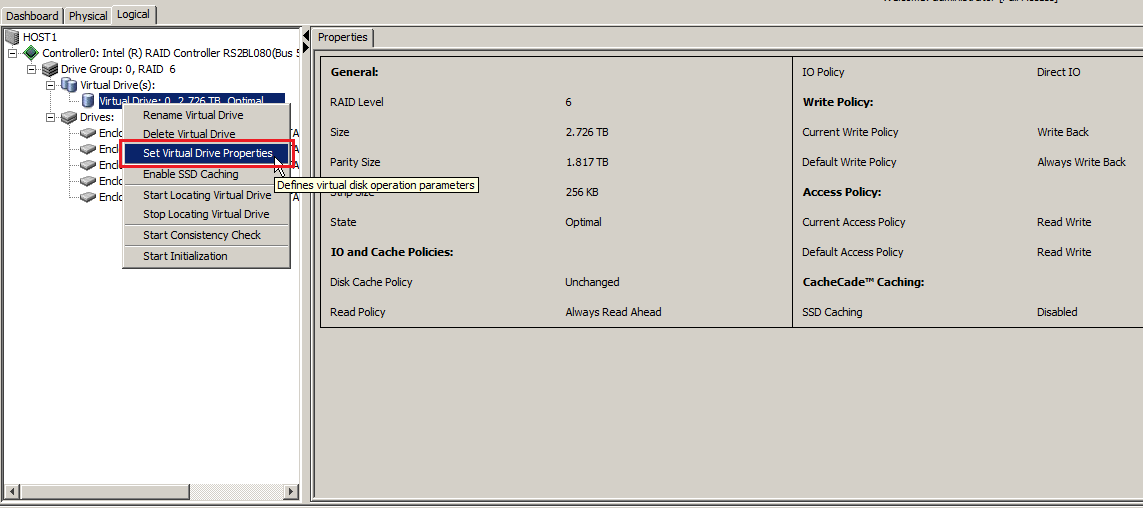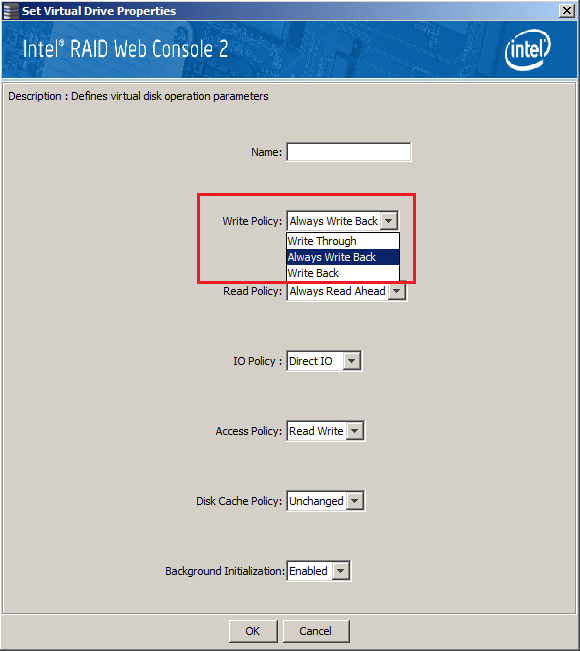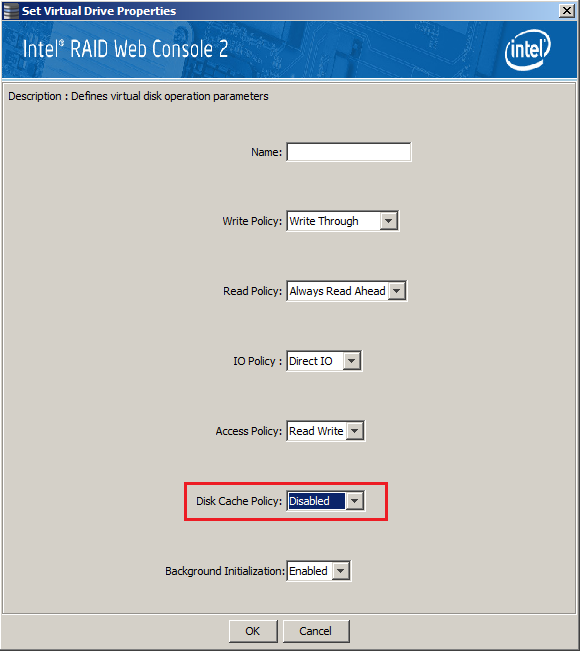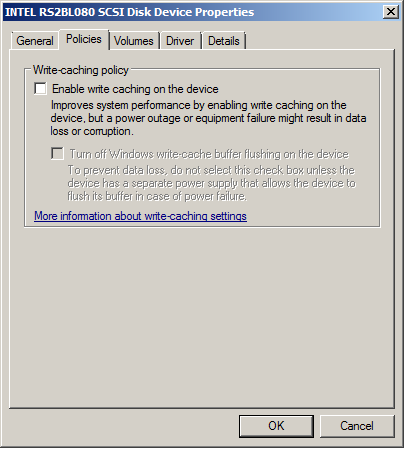RAID Capacitors and Smart Cache Batteries
These batteries are used to protect the contents of a hardware RAID card's write cache from being lost, in the event of a power-outage.
- If you are using a software RAID controller, or a host bus adapter (HBA) that does not have a cache buffer, this article does not apply to you.
- If you have a hardware RAID controller, such as the Intel RS3DC080, which features a hardware cache buffer - typically 512MB to 2GB in size, then this article applies.
Some RAID capacitors or cache batteries can be particularly expensive. In additional, many cache batteries have a finite life and you should expect to replace these every 3-5 years or so.
More Information
Hardware RAID cards can be configured to use their buffer in one of two ways:
- Read only cache (also known as write-through, or write-through reads)
- Read and write cache (also known as write-back)
In read and write cache mode, the contents of the write cache will be lost, i.e. not committed to disk, in the event of an unexpected power outage. The optional write cache battery or capacitor can protect the contents of this write cache for a limited period of time, usually 48 hours or less. When power is restored, the RAID controller will commit the contents of the cache to disk.
However, your operating system will still have suffered from an unclean shutdown and there is no guarantee that your file system or application state will be any better than if a RAID cache battery was not fitted.
.png)
The above diagram shows that the RAID cache battery only protects a portion of the data flow from application to disk.
Recommendations
- Always have a fully tested and configured UPS system, that will shutdown your system when the battery reaches a low level. There must be enough run time at this point to shutdown or pause any virtual machines, and then to shutdown the host. Depending on your configuration, the total shutdown time is likely to be around 8 minutes.
- If data security and reliability is of paramount importance, and performance is not an issue, always leave the write cache feature of your virtual drives off, as well as disabling the actual hard drive cache.
- In most situations, there are performance needs and the write cache feature of the RAID controller is beneficial. In this situation, in addition to the above UPS, a RAID cache battery gives a small additional level of protection whilst maintaining performance, but bear in mind it only protects one portion of the data flow from application to disk.
- If you are aware of a UPS fault, or do not have a UPS, and do not have a RAID battery or capacitor, then whilst the fault remains you should turn off the write cache feature of your virtual drives, using the Intel RAID Web Console.
- Always test UPS batteries regularly. UPS batteries last on average for between 3 to 5 years, depending on the number of charge/discharge cycles, and temperature.
- Always ensure you have adequate backups and a disaster recovery plan.
How to Turn off Write Caching at the Virtual Drive Level
- Open Intel RAID Web Console / LSI MegaRaid Storage Manager
- Login to the system using your Windows Administrator username and password
- Go to the Logical tab
- Note the existing Write cache policy settings on the right hand side
- For each virtual drive, right hand click on the virtual drive and then left click on Set Virtual Drive Properties
- You have three options under Write Policy:
- Write Through - no write caching - this is the safest setting, but also the slowest
- Always Write Back - write caching enabled in all circumstances
- Write Back - write caching only enabled when a working battery or capacitor is fitted
- You can also disable the individual hard drive cache by changing the Disk Cache Policy to Disabled.
- Click OK to accept the changes.
Further Considerations
Disabling Write Cache at the Operating System Level
Many applications or systems attempt to turn off disk caching to provide security in the event of a power loss. For example, a Windows Domain Controller will turn off write caching where it can.
However, when a Hardware RAID card is fitted, this does not guarantee that the hardware write cache either on the controller or the end disks will actually be disabled. Do not rely on this feature to provide data integrity in the event of an unplanned power loss.
Windows Updates
We recommend that you turn off Automatic Windows Updates, both on Host Virtualisation servers, and also the Guest servers. Systems should be patched regularly as part of your system maintenance plan, rather than automatically. This ensures that the overall shutdown time when the UPS battery is low, is relatively consistent, ensuring a clean shut-down.
Applies to:
- All Servers with a Hardware RAID Controller



